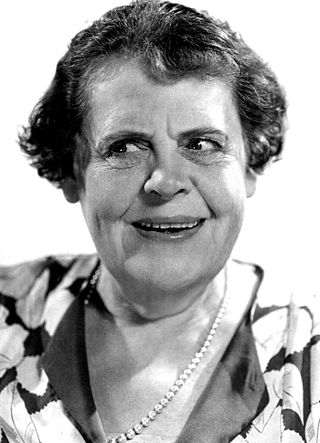
Leila Marie Koerber, known by her stage name Marie Dressler, was a Canadian-born stage and screen actress and comedian, who was popular in Hollywood in early silent and Depression-era film.
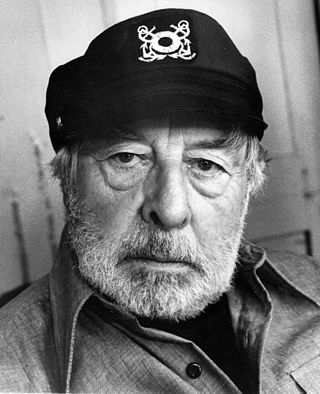
John Houseman was a British-American actor and producer of theatre, film, and television. He became known for his highly publicized collaboration with director Orson Welles from their days in the Federal Theatre Project through to the production of Citizen Kane and his collaboration, as producer of The Blue Dahlia, with writer Raymond Chandler on the screenplay. He won the Academy Award for Best Supporting Actor for his portrayal of Professor Charles W. Kingsfield in the 1973 film The Paper Chase. He reprised the role of Kingsfield in the 1978 television series adaptation.

The Federal Theatre Project was a theatre program established during the Great Depression as part of the New Deal to fund live artistic performances and entertainment programs in the United States. It was one of five Federal Project Number One projects sponsored by the Works Progress Administration, created not as a cultural activity but as a relief measure to employ artists, writers, directors, and theater workers. National director Hallie Flanagan shaped the FTP into a federation of regional theaters that created relevant art, encouraged experimentation in new forms and techniques, and made it possible for millions of Americans to see live theatre for the first time. Although The Federal Theatre project consumed only 0.5% of the allocated budget from the WPA and was widely considered a commercial and critical success, the project became a source of heated political contention. Congress responded to the project's racial integration and accusations of Communist infiltration and cancelled its funding effective June 30, 1939. One month before the project's end, drama critic Brooks Atkinson summarized: "Although the Federal Theatre is far from perfect, it has kept an average of ten thousand people employed on work that has helped to lift the dead weight from the lives of millions of Americans. It has been the best friend the theatre as an institution has ever had in this country."

Arthur "Dooley" Wilson was an American actor, singer and musician who is best remembered for his portrayal of Sam in the 1942 film Casablanca. In that romantic drama, he performs its theme song "As Time Goes By".

Rose McClendon was a leading African-American Broadway actress of the 1920s. A founder of the Negro People's Theatre, she guided the creation of the Federal Theatre Project's African American theatre units nationwide and briefly co-directed the New York Negro Theater Unit.

Zita Johann was an Austrian-American actress. She is best known for her role in Karl Freund's film The Mummy (1932) starring Boris Karloff.
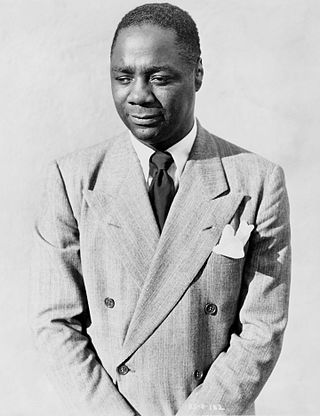
Leonard Lionel Cornelius Canegata, known professionally as Canada Lee, was an American professional boxer and actor who pioneered roles for African Americans. After careers as a jockey, boxer and musician, he became an actor in the Federal Theatre Project, including the 1936 production of Macbeth adapted and directed by Orson Welles. Lee later starred in Welles's original Broadway production of Native Son (1941). A champion of civil rights in the 1930s and 1940s, Lee was blacklisted and died shortly before he was scheduled to appear before the House Un-American Activities Committee. He advanced the African-American tradition in theatre pioneered by such actors as Paul Robeson. Lee was the father of actor Carl Lee.
Drums O' Voodoo is a 1934 film about voodoo. The film was written by J. Augustus Smith, based on his 1933 play Louisiana, and was directed by Arthur Hoerl.

Warren William was a Broadway and Hollywood actor, immensely popular during the early 1930s; he was later nicknamed the "King of Pre-Code". He was the first actor to play Perry Mason.
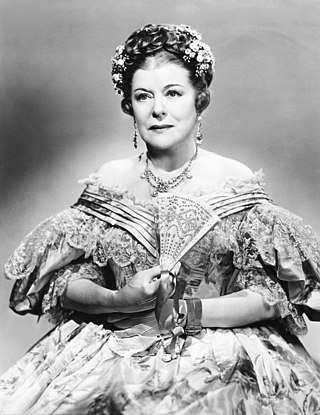
Mary Boland was an American stage and film actress.

Jed Harris was an Austrian-born American theatrical producer and director. His many successful Broadway productions in the 1920s and 1930s include Broadway (1926), Coquette (1927), The Royal Family (1927), The Front Page (1928), Uncle Vanya (1930), The Green Bay Tree (1933) and Our Town (1938). He later directed the original Broadway productions of The Heiress (1947) and The Crucible (1953).

Barbara Stanwyck was a prolific American actress and dancer who appeared in a total of 95 theatrically released full-length motion pictures. Orphaned before she was old enough to attend school, she became fascinated by the burgeoning film industry, and actress Pearl White in particular, whom she would mimic on the playgrounds. "Pearl White was my goddess, and her courage, her grace, and her triumphs lifted me out of this world."

Clarence Muse was an American actor, screenwriter, director, singer, and composer. He was the first African American to appear in a starring role in a major studio film, 1929's Hearts in Dixie. He acted for 50 years, and appeared in more than 150 films. He was inducted into the Black Filmmakers Hall of Fame in 1973.

The Voodoo Macbeth is a common nickname for the Federal Theatre Project's 1936 New York production of William Shakespeare's Macbeth. Orson Welles adapted and directed the production, moved the play's setting from Scotland to a fictional Caribbean island, recruited an entirely Black cast, and earned the nickname for his production from the Haitian vodou that fulfilled the role of Scottish witchcraft. A box office sensation, the production is regarded as a landmark theatrical event for several reasons: its innovative interpretation of the play, its success in promoting African-American theatre, and its role in securing the reputation of its 20-year-old director.

Jack Carter was an American actor. He is known for creating the role of Crown in the original Broadway production of Porgy (1927), and for starring in Orson Welles' stage productions, including Macbeth (1936) and Doctor Faustus (1937). He appeared in a few motion pictures in the 1930s and 1940s.

Horse Eats Hat is a 1936 farce play co-written and directed by Orson Welles and presented under the auspices of the Federal Theatre Project. It was Welles's second WPA production, after his highly successful Voodoo Macbeth. The script, by Edwin Denby and Welles, was an adaptation of the classic French farce The Italian Straw Hat by Eugène Marin Labiche and Marc-Michel.

Frank Henry Wilson was an American stage, radio, and film actor and writer.

Lionel John Monagas was an American actor originally from Caracas, Venezuela. A member of the original Lafayette Players company of Harlem, he appeared in theatrical and film productions.

Darby Jones was an American actor known for his role as the zombie-like Carrefour in the 1943 horror film I Walked with a Zombie. He appeared in a similar role in the 1945 film Zombies on Broadway. He had uncredited appearances in the 1937 films Swing High, Swing Low and A Day at the Races, and his other roles include Broken Strings (1940), Virginia (1941), White Cargo (1942), and Zamba (1949). Jones also appeared in several Tarzan films, including the 1933 film serial Tarzan the Fearless, and the films Tarzan Escapes (1936) and Tarzan's New York Adventure (1942).
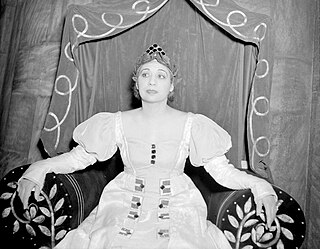
Edna Lewis Thomas was an American stage actress whose career began in New York City during the Harlem Renaissance. She appeared on Broadway, with the Lafayette Players theater company, and in productions by the Federal Theater Project of the Works Progress Administration. Her portrayal of Lady Macbeth in Orson Welles' all-Black "Voodoo" Macbeth in 1936 was much acclaimed. She was an influential figure in Black theater, and was a member of the Alhambra Players and the Harlem Experimental Theatre. She only appeared on screen once, in the 1951 film A Streetcar Named Desire.




















